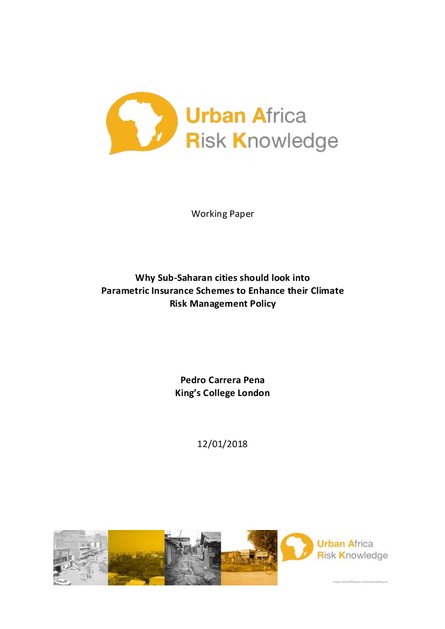
For the global humanitarian community, disaster risk is most concerning in developing countries where natural hazards are increasingly threatening their fragile economies and the lives, health, and livelihoods of vulnerable populations. Providing fast relief and recovery is a fundamental aim behind humanitarian action, but costly and frequent aid has raised concerns in the global development community. Effective DRR strategies matched with innovative risk transfer options through parametric insurance, have been successful in managing sovereign risk. This is match is particularly relevant in countries where hazard information for a region is reliable, but data for exposure and vulnerability is either not available or of low quality.
This research explored the opportunity that parametric insurance mechanisms bring to climate risk management (CRM) policies of city governments. This research was pursued by understanding insurance in sovereign CRM models, as well as different elements in a Sub-Saharan city that influence its CRM policy. The Nairobi City County served as a case study and was analysed using an adapted PESTLE – SWOT framework of analysis to obtain a bird’s eye view of the different contexts of the city.
Links
Resource collections
- UN Habitat - Urban Response Collection
- Urban Response - Urban Crisis Preparedness and Risk Reduction
- Urban Response Collection - Community Engagement and Social Cohesion
- Urban Response Collection - Economic Recovery
- Urban Response Collection - Environment and Climate Change
- Urban Response Collection - Housing, Land and Property
- Urban Response Collection - Urban Crisis Response, Recovery and Reconstruction
- Urban Response Collection - Urban Resilience
